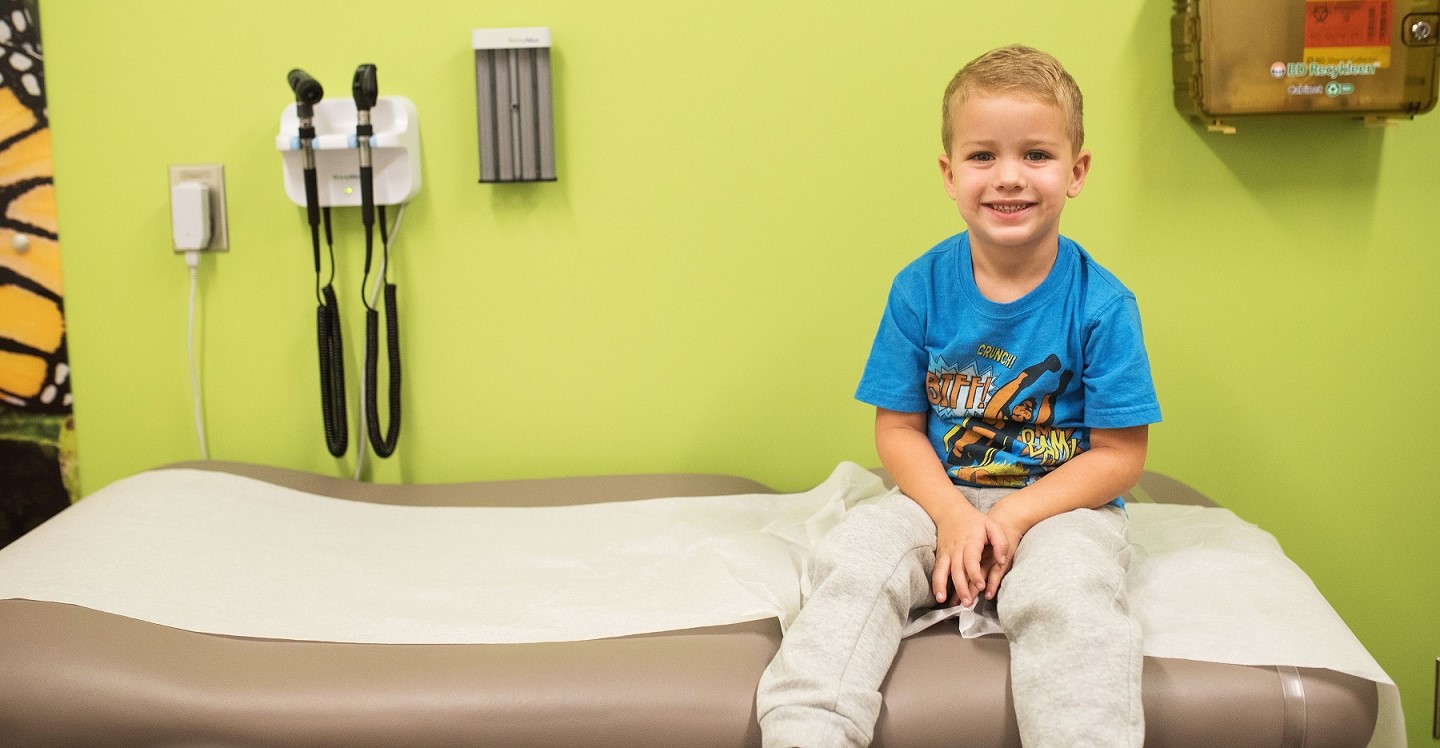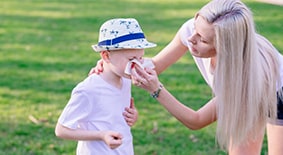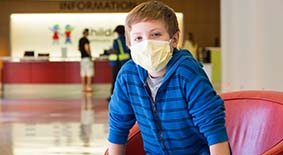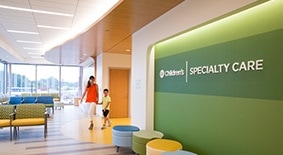If your child suffers from allergies or an immunodeficiency disorder, our team of pediatric specialists at Children’s Healthcare of Atlanta is here to help. We treat kids and teens who have a range of allergies and immunodeficiency disorders, including:
- Allergic conjunctivitis
- Allergic rhinitis
- Anaphylaxis
- Asthma
- Atopic dermatitis
- Contact dermatitis
- Drug allergies
- Food allergies
- Hereditary angioedema
- Immune deficiencies
- Sinusitis
- Urticaria
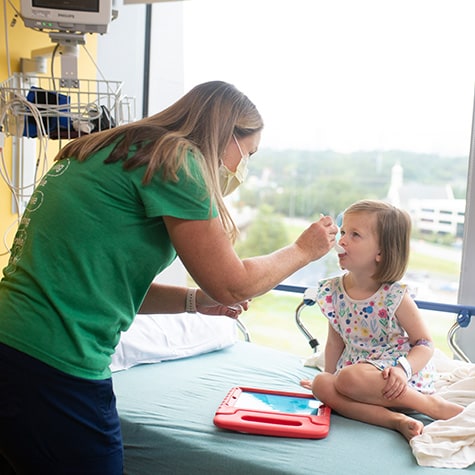
First Drug to Reduce Multiple Food Allergies FDA Approved
Based on findings from a clinical trial Children’s and Emory participated in, the FDA approved omalizumab for one or more food allergies in patients as young as 1 year.
Read Press ReleaseWhat are allergies?
Allergies occur when the body produces an abnormal immune response to something. Allergies can be seasonal or happen when a child comes in contact with an allergen. The most common types of allergies include:
- Environmental allergens, such as pollen, dust mites or pets
- Foods, such as peanuts, tree nuts, milk or eggs
- Insect venom from wasps or bees
- Drugs, such as penicillin
What are common symptoms of allergies in children?
- Coughing
- Diarrhea
- Fainting
- Hives
- Itching
- Nausea or vomiting
- Runny or stuffy nose
- Sneezing
- Stomach pain
- Swelling of body parts
- Tingling in the tongue or lips
How are allergies diagnosed in children?
Our team offers the following diagnostic testing to evaluate all types of allergies and asthma:
- Skin testing
- Blood testing
- Guided elimination diets
- Oral food challenges
- Pulmonary function testing
What treatments are available for children with allergies?
Treatment options may include:
- Allergy shots
- Bleach baths
- Drug desensitization for certain medicines
- Eye drops
- Food avoidance
- Infant food challenges and early feeding for the prevention of peanut allergy
- Inhalers
- Injections of biologic medications (e.g. Xolair, Fasenra)
- Nasal saline lavage
- Nasal sprays
- Oral immunotherapy for peanut allergy
- Rescue medications (e.g. autoinjectable epinephrine) and action plans for their use
- Topic therapies (e.g. steroidal and non-steroidal ointments and creams)
- Wet wraps
At Children’s, we embrace collaboration among our pediatric specialists. Through this collaboration, we offer many multidisciplinary programs and clinics in which our providers participate.
- Food Allergy Program: This program seeks to perform impactful research and deliver high-quality, patient-centered care to transform the lives of children affected by food allergies, including a peanut allergy.
- High-Risk Asthma Program: This program offers a multidisciplinary, holistic approach to the care of children with severe asthma. It aims to ensure asthma control and improve quality of life for children with asthma. Services are provided by a pulmonologist, allergist, immunologist, nutritionist and social worker.
- Procedure Clinic: This clinic uses state-of-the-art treatment, testing and procedures to best care for your child.
- Eosinophilic Esophagitis Clinic: This clinic offers a multidisciplinary, holistic approach for treating children with eosinophilic esophagitis and aims to improve their quality of life. Services are provided by an allergist, gastroenterologist and nutritionist.
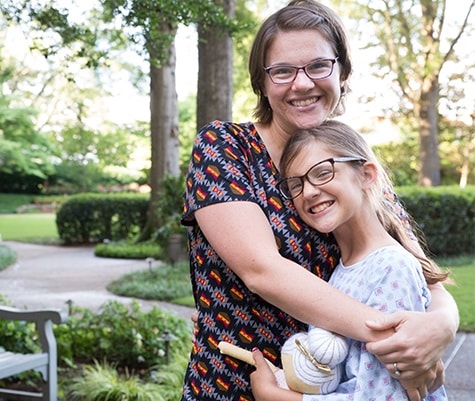
Parents: Here are some helpful tools and resources for you
It can be tough to know where to start in supporting your child on their food allergy journey. Visit the resources below for quality information on coping with the daily challenges of living with food allergies:

Food allergy resources: Supporting your child's food allergy journey
Pediatric allergists and immunologists
- Cullen Dutmer, MD, Medical Director, Immunology
- Idil Ezhuthachan, MD
- Gerald Bell Lee, MD
- Santhosh Kumar, MD
- Melinda Rathkopf, MD
- Brian Vickery, MD, Division Chief, Allergy and Immunology and Director, Food Allergy Program
Pediatric Psychologists
Advanced practice practitioners
Center for Advanced Pediatrics
2174 North Druid Hills Road NE
Atlanta, GA 30329
Hughes Spalding Hospital
35 Jesse Hill Jr. Drive SE
Atlanta, GA 30303
Contact Us 404-785-KIDS (5437)
